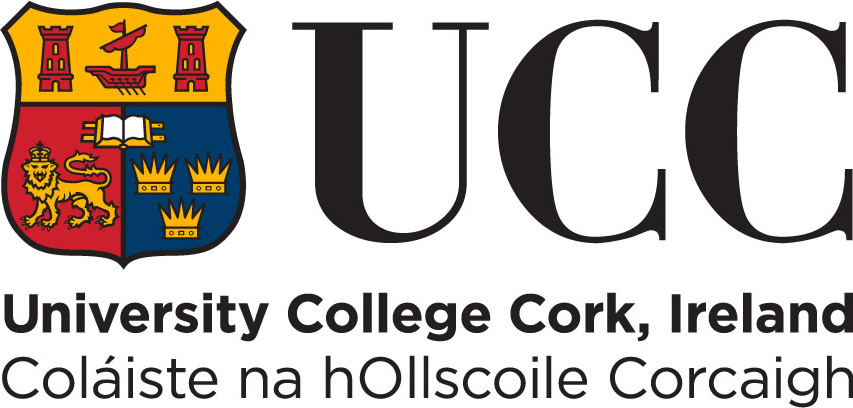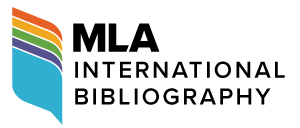Cinema Against Doublethink: Ethical Encounters with the Lost Pasts of World History, by David Martin-Jones. Routledge, 2019, 242 pp.
Laurence Kent
Review
True empathy is not a total understanding of the other, the gait of one in the satisfied knowledge of a walk in the other’s shoes, but an encounter with empathy’s own limits, the impossibility of access to the other’s experiences and histories, an act of hesitation at the edge of an irreducible abyssal distance. What David Martin-Jones does in his bold and brilliant Cinema Against Doublethink is to extend this Levinasian insight to a perspective on world history and the lost pasts of the Global South. By analysing films where “cinematic depictions of the past are aesthetically structured like ethical encounters with others” (2), Martin-Jones diagnoses and exposes a trend in world cinema (what he calls a “world of cinemas”) to decentre Eurocentric and colonialist historical narratives through forcing an encounter with histories that do not fit the singular narrative decreed by colonial modernity. This is framed by Martin-Jones through the Orwellian notion of doublethink as the spinning of a political narrative of the past at odds with the facts.
The book is a welcome and important interjection into scholarship on Deleuze and cinema, and, against a trend of foretelling the death of time-image cinema, such as in John Mullarkey’s Refractions of Reality, Martin-Jones convincingly tracks the experiments with time in cinema from across the world that deal with the representation of transnational traumas. Building on his earlier Deleuze, Cinema and National Identity and Deleuze and World Cinemas, and their attempt to escape the Eurocentric nature of Deleuze’s filmic oeuvre, Martin-Jones’ timely work rethinks Deleuze and his legacy in film and film-philosophy scholarship in relation to the expansion of neoliberal globalisation and its forces of precarity. He is especially cognisant of how this lack of alternative in end of history narratives forms the conditions for the development of right-wing populism verging on fascism that has found recent expression through the 2016 US presidential election and UK Brexit vote. To answer the pressing question of how a non-fascist life might indeed be envisioned today, Martin-Jones reengages history and its representation in cinema—particularly lost narratives of oppression from the Global South—in order to forge new futures that make new kinds of socio-political contracts outside of colonial modernity.
Martin-Jones takes Deleuze’s Bergsonian ontological commitment to the notion of a pure past, a “world memory”, and places it in a politico-historical context (10). Privileging the ethical aspects of Deleuze’s work over its ontology enables a repoliticisation of Deleuze’s commitment to cinema’s ability to revitalise a belief in this world, where this world is taken instead to mean this world’s history.
Indeed, this book gets to the heart of the tension inherent in engaging with Deleuze in today’s political climate. Deleuze’s philosophy, especially as embodied in the notion of the time-image, valorised the indeterminate and irrational as the tools with which to undermine static and dogmatic thinking in the legacy of the Second World War. As well as placing this insight within a wider history of the horrors of colonialism, Martin-Jones maintains that this encounter with cinematic indeterminacy—reoriented in his book as hesitation over the official narrative of colonial history—still holds traction even in the face of rampant uncertainty weaponised as “fake news” and what Latour, in his influential essay “Why Has Critique Run out of Steam?”, calls “gullible criticism” in the guise of proliferating conspiratorial mindsets (230). Before exploring the details of this tension, it is important to survey how a reassessment of the problem is achieved by Martin-Jones, and how he deftly supplements a “reconstructed” Deleuze with the insights of Argentine philosopher Enrique Dussel (15).After prefacing with an amusing and intriguing thought experiment involving a Schrödinger-esque cat in a box in an art gallery, a playful way of setting up the concerns with the veracity of history and our relation to inaccessible lost pasts, Martin-Jones spends the first part of his book clearly taking the reader through the different fields and research areas he intends to stage an intervention in, discussing the myriad ways a focus on history interacts with his ethical commitment to “transmodernity”, taken from Dussel: a move towards a politics of liberation for those excluded from colonial modernity (44). From the field of Deleuze and Guattari studies to the film-philosophy community gaining traction in UK academia and the rich study of history on film, Martin-Jones interjects on these topics by utilising Dussel to provide a world historical approach, thereby expanding the often-limited perspectives that linger within them and transcending the colonial modernity that he maintains persists within these domains of research and in society at large.
In Chapter One, Martin-Jones explicates how Dussel’s philosophy influences his approach. He uses an encounter between scholarship on history on film with the ethical turn that pervades film-philosophy to set out the relationship between history and ethics, and to frame the presentation of lost pasts on screen as a fundamentally ethical question. Importantly, Dussel’s insights into world systems analysis and his post-Levinasian ethics allow a critique of both fields of scholarship as harbouring Eurocentric sentiments and assumptions. Dussel’s world historical approach allows Martin-Jones to view transnational history through the lens of colonial modernity, which he then puts in the larger context of the Anthropocene. National perspectives on history are posited as inherently tied to imperialist logics, with the methodology of “distant viewing” being adopted by Martin-Jones in order to view films across borders and time-frames within world (and indeed universal) history (50). This world historical approach thus culminates in the interweaving of colonial modernity, Cold War attitudes, and the logic of neoliberalism within a global capitalist ecology. From this, Martin-Jones develops a cinematic ethics that he deems suitable for the Anthropocene, importantly rejecting a focus on films that fetishise technologies within the sci-fi genre. Instead of considering merely doom-laden, big-budget fare as suitable for exploration of the current ecological crisis, Martin-Jones intimates how films such as Embrace of the Serpent (El abrazo de la serpiente, Ciro Guerra, 2015) can posit new ways of formulating the ethical relation to otherness outside the obsession with future technologies.
With regard to film-philosophy, Martin-Jones undermines the Eurocentric privileging of ontology over ethics, and he rejects a trend towards depoliticisation in theoretical approaches to film, building on previous film-philosophical work such as William Brown’s Non-Cinema: Global Digital Filmmaking and the Multitude, which also utilises Dussel’s philosophy. This critique of the film-philosophical methodology is extended into Chapter Two, which does the work of reconstructing a Deleuzian approach to cinema, navigating the aspects of Deleuze’s taxonomic schema that are most useful for the task. Setting up a focus on the crystalline image as that which allows virtual pasts to exist within the actual present, Martin-Jones supplements the Deleuzian ethics of the undermining of the dogmatic image of thought with a historically oriented notion of hesitation, which he takes from Alia Al-Saji. As well as the linearity of the sensory-motor schema (the movement between perception, affect, and action) that the Deleuzian time-image ungrounds, Martin-Jones stresses the potential of cinema, through the hesitative gesture forced on the spectator, to unground the Hegelian notion of linear history and ultimately to undermine the denial of coevalness that relegates histories from the Global South as prior to the development of Western capitalism. The lie of this narrative is manifested in the intricately intertwined histories of colonial modernity with transnational pasts outside of Europe.
Martin-Jones here sets up the structure of the rest of the book, which will consist of a series of chapters of filmic analysis, each one considering a pair of films around a different aspect of a taxonomy of “contracts” (78). The book follows the fascinating logic of a cosmic zooming in, from the universal to the individual, focusing on the natural, social, racial, and individual contracts that make up colonial modernity under globalisation. This zoom-in of scale across the book is matched by a temporal progression from the beginning of the universe, the birth of colonial modernity and a possible start date for the Anthropocene in 1492 with the “discovery” of America, the Cold War, and finishing with an examination of neoliberal globalisation.
Chapter Three analyses Uncle Boonmee Who Can Recall His Past Lives (Loong Boonmee raleuk chat, Apichatpong Weerasethakul, 2010)and Nostalgia for the Light (Nostalgia de la luz, Patricio Guzmán, 2010)in order to make claims for the way figures and landscapes can archive a universal history. The importance of centres of indetermination, where localised, faceified, and anthropomorphised figures act as mouthpieces for the larger history of the world and the universe, is in ultimately decentring the human and revealing the intertwined human and nonhuman histories of the Earth. This provides important perspectives on the transnational history of humanity’s entanglement with the planet and a vision of the Anthropocene that reckons with the role of colonial modernity in mediating the natural contract between humans and the Earth.
Chapter Four looks to How Tasty Was My Little Frenchman (Como era gostoso o meu francês, Nelson Pereira dos Santos, 1971)and Even the Rain (También la lluvia, Icíar Bollaín, 2010)to explore the racial contract that has manifested since the birth of the North Atlantic trade circuit. Through these two, albeit very different, stories of intercultural exchanges across the Atlantic, a history of colonial modernity’s origins are mediated through racial difference. It is in the faces of characters in pivotal moments at the end of both films where the fourth wall is broken, that the myriad lost pasts are contained and force a hesitation on the viewer with regard to their excluded histories.
Chapter Five looks at the documentaries The Act of Killing (Joshua Oppenheimer, 2012)and At the Foot of the White Tree (Al pie del arból blanco, Juan Andrés Alvarez, 2007)to explore the Cold War as something still in decomposition across its proxy battles in the Global South. These films deal with remediating these traumatic pasts through dramatic re-enactment and rediscovered photographs respectively, presenting cracks in the crystal image. The emergence of lost pasts in the state of exceptions that pervaded Cold War logic reveals the moments where the social contract was suspended and force the spectator to imagine the relation between the private and the public anew.
Chapter Six brings these historical logics to bear on films depicting the effects of neoliberalism on the individual body, focusing on Carancho (Vulture, Pablo Trapero, 2010)and Lady Vengeance (Chinjeolhan geumjassi, Park Chan-wook, 2005). Neoliberalism is positioned as the most recent stage of colonial modernity, which crushes the individual and their physicality, but it is through new kinds of interaction, often bodily, that we can imagine new forms of individual contracts between citizens. It is thus through the body that new forms of collectivity can be imagined, and the virtual histories corporally stored are made accessible in these films that allow new futures to be envisaged, beyond the static conception of the neoliberal end of history.
Martin-Jones finishes his book with a return to the ethical stakes of the problem: how can these films aid us in living a non-fascist life? The revelation that there are other pasts and alternative histories that undermine the doublethink of the Eurocentric and colonial narratives is vital in viewing the world anew, and what Martin-Jones calls a “hesitant ethics of the Anthropocene” is part and parcel of fostering a relationship to the world and its history that understands the recognition of otherness as necessitating a recognition of lost and inaccessible pasts (214). Cinema is against doublethink when it begets the realisation of the buried world memories that contain within them a story of the intertwined nature of the human/nonhuman, as well as interdependencies between national cultures across global lines of wealth and power, undermining the supremacy of the past colonisers in neoliberal institutions and necessitating the design of new contracts built on these virtual pasts.
However, this is where the antagonism at the centre of the book reaches its head. The difference between the Deleuzian powers of the false as a way to undermine colonial historical narratives and the proliferation of uncertainty that defines current phenomenon such as that of fake news is in constant tension. Martin-Jones finds a criterion with which to discern an ethics behind this problem of tactics when he writes at the beginning of the book that “the only difference between doublethink and the time-image is one of political intent” (7). Throughout the book, Martin-Jones’ own political intent is clear, but this speaks to a greater ambiguity in the political use of Deleuze’s philosophy today (it is now common knowledge, for example, that the Israeli Defence Forces has employed Deleuzian theory in military skirmishes against Palestinian villages). Despite Martin-Jones’ open political alliances to anti-fascism, this tension still finds itself embodied in the politics of his citations. Interestingly, when discussing the weaponisation of uncertainty and hesitation, Martin-Jones quotes Latour’s dissection of the sowing of doubt in discourses on climate change. Martin-Jones picks up on how Latour correctly diagnoses the use of aspects of critical theory by the political right to undermine the certainty of scientific fact as a tactic of climate denial. However, it is worth highlighting that Latour himself does not stage the argument along this political axis, and equally chastises the conspiratorial thinking that goes into those decrying CIA involvement in any geopolitical event (a great irony considering the 1973 coup in Chile that began a wave of neoliberalisation itself was a CIA plot). This tension is nowhere more apparent than in Martin-Jones’ own framing of the book using George Orwell’s 1984, which has recently become a sledgehammer for a right-wing and conservative attack on so-called “woke” politics: the coddled “snowflakes” that have to invent their own doublethink of racial equality and social justice to escape the cold hard facts of the world (white supremacy). Conservative YouTuber Paul Joseph Watson’s attempt in 2017 to claim that Orwell would have opposed current anti-fascist action speaks to this fraught politics of citation. Martin-Jones, appropriately, does not try to tie down this problematic of tactics and political intent, and the tension is left open in the conclusion of the book. Martin-Jones indeed relishes the irony that Orwell’s dystopian text, which was also utilised as anti-communist propaganda during the Cold War, has given him the terms with which to diagnose the fascism that seems to be burgeoning in the wake of a long history of colonial modernity and neoliberalism.
Martin-Jones’ book is a welcome and impressive addition to an increasing reintegration of politics into film-philosophical approaches, whilst also standing as a work of political and ethical theory in its own right, both using cinema to channel a sociopolitical analysis and staking a modest claim on cinema’s ability to decentre Eurocentric and colonial logics for the spectator. Martin-Jones has reoriented a Deleuzian pedagogy of the image around the learning of history’s contingencies, but the status of this form of learning is clearly different from that most often expected from historical films. It is not a set of knowledges and facts about the past that these cinemas offer. The kind of training that they provide is one of ungrounding colonial mentalities wherever they exist. This empathetic engagement with the world that Martin-Jones valorises, and which he deems necessary in the face of looming ecological disaster, is of a hesitation around claims to totalising accounts of the past. True empathy must accept otherness, especially regarding narratives of world history, and it is in an openness to these lost pasts that a new future can be envisaged.
References
1. The Act of Killing. Directed by Joshua Oppenheimer, Fine Cut for Real, 2012.
2. At the Foot of the White Tree [Al pie del árbol blanco]. Directed by Juan Andrés Alvarez, Intendencia de Montevideo, 2007.
3. Brown, William. Non-Cinema: Global Digital Film-Making and the Multitude. Bloomsbury, 2018, DOI: https://doi.org/10.5040/9781501327285.
4. Carancho [Vulture]. Directed by Pablo Trapero, Fine Cut, 2010.
5. Embrace of the Serpent [El embrazo de la serpiente]. Directed by Ciro Guerra, Buffalo Films, 2015.
6. Even the Rain [También la lluvia]. Directed by Icíar Bollaín, Alebrije Cine y Video, 2010.
7. How Tasty Was My Little Frenchman [Como era gostoso o meu francês]. Directed byNelson Pereira dos Santos, Condor Filmes, 1971.
8. Lady Vengeance [Chinjeolhan geumjassi]. Directed by Park Chan-wook, Moho Film, 2005.
9. Latour, Bruno. “Why Has Critique Run out of Steam? From Matters of Fact to Matters of Concern.” Critical Inquiry, vol. 30, no. 2, Winter 2004, pp. 225-48. https://doi.org/10.2307/1344358.
10. Martin-Jones, David. Deleuze, Cinema and National Identity.Edinburgh UP, 2006.
11. ---. Deleuze and World Cinemas. Continuum, 2011, DOI: https://doi.org/10.5040/9781472546319.
12. Mullarkey, John. Refractions of Reality: Philosophy and the Moving Image. Palgrave Macmillan, 2008, DOI: https://doi.org/10.1057/9780230582316.
13. Nostalgia for the Light [Nostalgia de la luz]. Directed by Patricio Guzmán, Atacama Productions, 2010.
14. Uncle Boonmee Who Can Recall His Past Lives [Loong Boonmee raleuk chat].Directed by Apichatpong Weerasethakul, Kick the Machine Films, 2010.
Suggested Citation
Kent, Laurence. “Cinema Against Doublethink: Ethical Encounters with the Lost Pasts of World History, by David Martin-Jones.” Book Review. Alphaville: Journal of Film and Screen Media, no. 21, 2021, pp. 194–199, https://doi.org/10.33178/alpha.21.13
Laurence Kent has recently completed his PhD in the Film Studies department of King’s College London, exploring the metaphysics of Gilles Deleuze’s cinematic philosophy. His current research interests include the representation of sapient intelligence in contemporary popular film from around the world, and the technics of cinema’s own form of alien intelligence that makes this possible. He has had articles published in Film-Philosophy, Pli: The Warwick Journal of Philosophy, Frames Cinema Journal, and Cinema: Journal of Philosophy and the Moving Image. He teaches in universities and film schools around London, including King’s College London, MetFilm School, and the London College of Communication.









